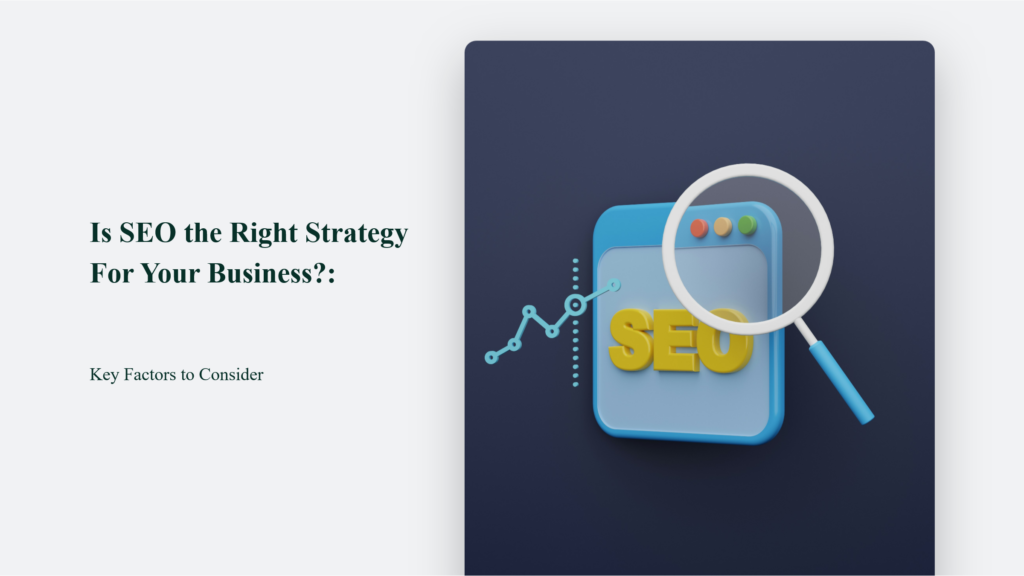When it comes to marketing, Search Engine Optimisation (SEO) is a cornerstone, pivotal in shaping businesses’ online visibility and success. In an era where Google processes over 3.5 billion searches per day, a robust SEO strategy is necessary for any business aspiring to thrive in the digital marketplace.
However, effective SEO – particularly when dealing with agencies – can be very elusive for a lot of businesses and for many the experience can be a frustrating experience where nothing is transparent and frankly, results don’t live up to expectations. Sometimes this is due to poor service, however in other cases expectation may simply not be in line with reality.
There are naturally a lot of factors that impact how successful an SEO campaign is going regardless of the quality of work and service of your provider. It is always wise to consider these factors yourself, but a good SEO agency should be able to give you an idea of what to expect concerning these in a campaign’s planning and strategy phase. Let’s look at some of the things you need to consider to decide if SEO is the answer for your business.

Is your business offering SEO Friendly?
For those who are less familiar with users’ search habits and aren’t as experienced in marketing, it can be a surprise to learn that your product may not be cost-effective to market in search engines.
Think about where your potential customers are and how they are likely to learn about the service you are offering. If you are selling flowers, for instance, it stands to reason that visibility in search engines will help you attract people looking to buy flowers because this is a known service that people are aware of and actively search for in Google.
However, if you are looking to market an app or community website or an innovative service that people aren’t aware of, you will have a hard time getting any value out of putting resources into SEO. Under these circumstances, you might be better off putting a budget into social media advertising, for example, to get your idea out there.
For example, when Uber first came on the scene, the ride-sharing concept was relatively novel and not in the public consciousness. So, search traffic around this was quite low – the public wasn’t yet aware this product was out there.
A good place to start is to use Google’s Keyword Planner and check the search volume on relevant terms for your niche.
Is the market competitive in search?
This leads us nicely into the discussion about the level of competition in your niche. You can get a sense of the competition for a particular search term by checking the volume and keyword difficulty in SEMRush or Ahrefs.
For highly competitive keywords, big, well-known, and long-established brands are likely to dominate the top spots. Your chance of outranking them is extremely low, no matter how skilled your agency is.
The strategy phase under these circumstances needs to take this into account, and your team should look to identify more niche, long-tail keywords that you might have a chance of ranking more quickly.
Where is your business at in its maturity?
Businesses at different stages of development have varying SEO ceilings, and expectations should align with this.
Google isn’t in the business of rewarding websites that are new on the scene and don’t have much information available about them. The days of start-ups grabbing top rankings for competitive keywords are over precisely because Google wants to reward the businesses that have stood the test of time, and it has more reason to trust. If you are starting out and haven’t earned much clout or reputation in the industry, it is going to take you longer to see results, as Google has less information to draw on to ascertain what your business is about.
Conversely, SEO might represent a terrific opportunity if you are at a more developed stage of the business. Perhaps you have a website that has sat there for quite some time, but you have spent your time and effort developing the offsite side of the business to great success. You have a steady stream of clients, and people in your industry know you.
Now, you are looking to put a bit of time into the website and SEO to give you a better chance of catching some of that online market to supplement what you have already built up. These conditions are very favourable, and chances are you will see your SEO dollar go a long way. You aren’t relying on it to drive your business and take your unknown brand name from the depths of obscurity into a position where it is earning clicks and leads. Rather, you are adding to an already working business model.
This needs to factor into your decision to invest in ongoing SEO. You may be better off putting resources into this at a later stage.
What is the Quality of Your Business Offering?
The Business Itself
The real quality of your business offering plays a crucial role in SEO success. Google is ultimately incentivised to reward the best quality businesses and websites that provide real value to users. Algorithm changes essentially aim to fine-tune the way that Google figures out how worthy a business is of visibility in search and real value to the community, and customers are increasingly difficult to ‘fake’ online with each update.
What this means is that quality businesses with a genuine good offering and valuable service to customers are in a much better position to achieve results through SEO. This is related to what we discussed above – older businesses still active are held in higher regard because they are likely providing a good service (they are still operating, after all, and have stood the test of time).
High-quality, valuable offerings naturally encourage customer engagement and sharing, key factors in SEO rankings. A strong product or service backed by positive customer experiences can significantly amplify your SEO efforts.
To put it another way, problems with the business model, service, or other aspect of the offering will naturally have a detrimental impact on SEO.
Website Quality
The quality of your website is a critical factor. A well-designed, user-friendly website with relevant, high-quality content is more likely to rank higher in search engine results. Google’s algorithms favour websites that provide a good user experience, which includes mobile responsiveness, fast loading times, and engaging content.
Also, think about the way the information is organised on your website. Is information set out in a legible page hierarchy? Is the information easy to read and understand quickly? We would also highly recommend having an active blog and linking posts through to your main pages.
Conclusion
Ultimately, SEO is a powerful tool, but only when used wisely and aligned with your business’s unique landscape. If you decide SEO is the right path, ensure you partner with an agency that understands your vision, communicates transparently, and is committed to growing with you. If not, numerous other marketing strategies might better suit your business’s needs.
Remember, the digital world is ever-evolving, and so should your strategies. Keep reassessing, stay informed, and choose the path that best aligns with your business’s journey to success.
Still unsure if SEO is the right solution for you? Here are some quickfire questions to consider:
What stage is your business currently in, and how does this impact your SEO goals?
Are you trying to establish a presence, expand your reach, or maintain dominance in specific areas?
How is the quality of your product or service?
Do you have strong customer testimonials or case studies that can bolster your online reputation?
Is your website optimised for the best user experience?
Does your site load quickly, display nicely on mobile devices, and offer valuable, easily navigable content?
What are my key performance indicators (KPIs) for SEO success?
Are you focusing on keyword rankings, organic traffic growth, conversion rates, or a combination of these factors?
How does your current online presence align with my desired market position?
By answering these questions, businesses can gain a deeper understanding of their unique SEO requirements and are better positioned to select an SEO agency that aligns with their specific needs and stages of growth.




